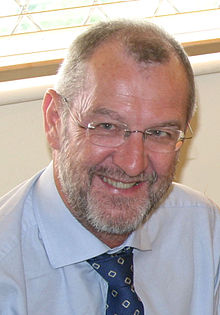
Speaking Personally: John Battle
John Battle
John was National Co-ordinator for Church Action on Poverty from 1983 until being elected MP for Leeds West in 1987. He has been Minister of State at the Dept of Industry and the Foreign Office. Since retiring as MP in 2010 he is, among other things, involved in community organising, Chair of Leeds J&P Commission and a Patron of NJPN.
Where does your commitment to justice and peace comes from?
The roots of my commitment to justice and peace are probably deep in my own family and Church experience. I learnt my own faith and politics from my mother and father and a good strong extended family which I was fortunate to be born into in Batley Carr, Dewsbury. Then I had the great privilege of studying for the Church to train to be a priest at the time of the great Vatican 11 Council, to learn the scriptures and story of the Church at a time when it was reaching out to the modern world. At the same time the western world was rediscovering the experiences of the two thirds world, and the likes of Thomas Merton, Charles de Foucault and Dorothy Day with the Catholic workers in America were insisting on finding ways of living out “contemplation in a world of action”. Part of my seminary training involved working in local communities under intense pressure such as Kirkby near Liverpool and Worsley Mesnes in Wigan and in Leeds when I left the seminary. The hopeful resistance of people struggling to survive to be found in poor communities always provides a driving inspiration. Great modern Gospel witnesses like Dom Heldar Camara in Brazil and Archbishop Oscar Romero insisted not only on being alongside the poor but on publicly asking “why they are poor”, challenging us to address unjust economic, social and political structures.
What for you are the most important areas of concern today?
Today the main concern has to be the widening gap locally and globally between the rich and the poor, and spelling out that the rich get rich at the expense of the poor, overconsuming the planet’s resources. The theologian Enrique Dusserl reminds us that the rich “consume the lives of the poor”. Today the” individual” is sacrificed on the altar of the so called “free market” and the poor are personally blamed for their plight. The need to address and spell out causes of structural injustice is greater than ever before. Inequalities are increasing and there is little real sense of a “common good” for all people and creation. These increasing divisions themselves lead to violence, conflict and destruction at all levels. Challenging the pervasive pessimism which insists there is “no alternative” to “free markets” and “growth” regardless of sustainability remains imperative. The Gospel message of encouragement and hope is more needed than ever to transform ourselves and our world, but it needs to be preached in the context of developing a new and deep sense of relationship and “solidarity” between all peoples. Today the “local is global and the global is local ” particularly in our urban cities where most of humanity now live and in which paradoxically as Pope Benedict commented “poverty is also isolation”. Rebuilding “basic supportive communities” is a primary task for the Church and wider society.
What sustains you in your commitment?
We do not start out alone from scratch. The great “communion of saints” (not all named and publicly proclaimed”) are witnesses to the “good news” of the Gospel in the witness of their lives that we can look to for inspiration and encouragement. We can find the face of Jesus Christ every day in other people particularly among the poor, sick and vulnerable in our own families and neighbourhoods as well as much further afield in our world. Great saints have gone before us but great saints are also among us today, living witnesses to the suffering, death and Resurrection of Jesus Christ.
What are your hopes for a Church like ours for the 21st Century?
The first messages of Pope Francis are a great fresh start for our Church. Firstly by directing us to the brilliant witness of Saint Francis himself and by suggesting that we become “a poor Church of the Poor” he has staked out a deep challenge. Significantly he did not just say we are a “church of the poor” but challenged us all to be a” poor Church”. Nor is this just an issue for the Vatican and the Bishops but rather it is as personal challenge to us all to be in solidarity with the poor among us.
Pope Francis insists that going towards the poor to “meet and greet” is not enough. We need to become “with ” the poor not doing things “to ” or “for” them. This will demand a solidarity of lifestyle we have not yet prepared for, and it implies that transforming the world cannot be done just by challenging words but by “living out the radical Gospel of Jesus Christ” and fusing together the tasks of transforming ourselves and our world simultaneously. We can no longer tell others what to do .We have to become living witnesses to the truth of the Gospel and that will lead us into a much deeper challenges to existing unjust structures, institutions, vested interests and policies that keep people poor and unable to develop their full human potential and right relationships.



